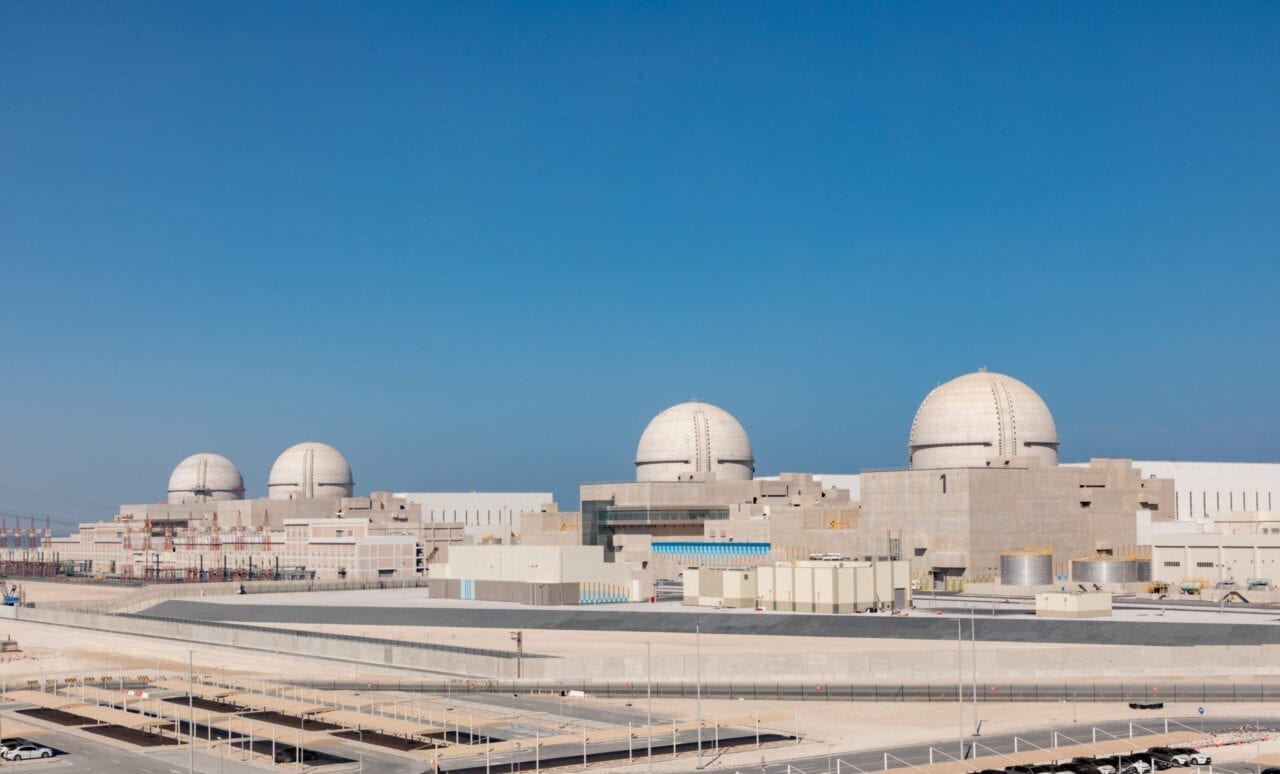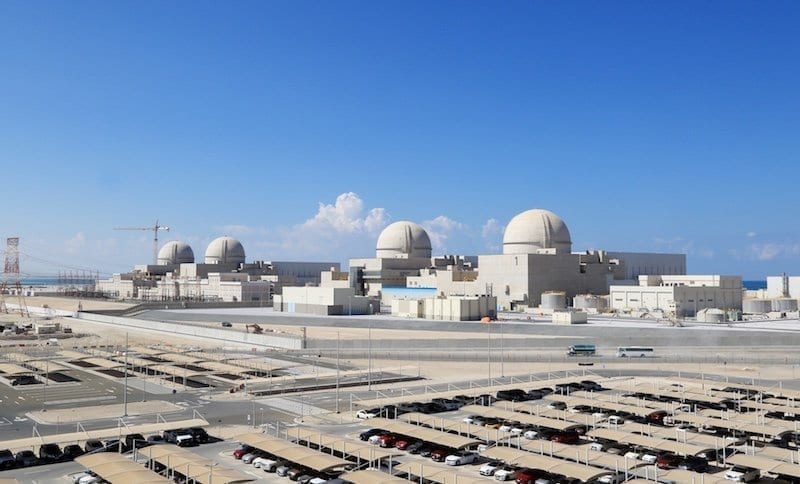The post License Issued for Barakah Nuclear Unit 2 appeared first on POWER Magazine.

The Arab world’s first nuclear power plant has received an operating license for its second unit, and the facility’s timeline still calls for commercial start-up of the first unit later this year.
The Barakah nuclear power station, in the Al Dhafrah region of Abu Dhabi, will include four units with 5,600 MW of generating capacity when complete. It is being built by Korea Electric Power Corp. (KEPCO) and will feature four APR-1400 pressurized water reactors. The plant is expected to supply about one-quarter of the peak power demand for the United Arab Emirates (UAE), according to government officials.
A Long Road to Completion
The UAE’s nuclear regulator on March 9 announced the operational license for Unit 2. Unit 1 was connected to the UAE’s national power grid in August of last year, and in December 2020 reached 100% of reactor power capacity during testing. Hamad Al-Kaabi, deputy chairman of Federal Authority for Nuclear Regulation (FANR) and the UAE’s representative at the International Atomic Energy Agency (IAEA), in a media briefing Tuesday said construction of Unit 3 is 94% complete, with Unit 4 at 87% complete (Figure 1).

“Today’s announcement represents a milestone in the UAE’s journey and realization of the vision of the wise leadership. It is considered a strategic achievement that culminates in the efforts exerted over the past 13 years,” Al-Kaabi said.
Construction of Unit 1 at Barakah began in 2012, with an original start-up date of 2017. There have been several delays associated with the project, including the need to train staff as the UAE builds its nuclear industry from scratch. The UAE has said the plant is critical to its ambition to move away from power generation that has been almost entirely supplied by the emirate’s vast supply of natural gas.
FANR Addresses Safety Concerns
Nawah Energy Co., the plant’s operator, initially applied for licenses for Units 1 and 2 in 2015. FANR granted the license for Unit 1 in February 2020; that unit’s construction was completed in 2018. Today’s licensing of Unit 2 means Nawah is now authorized to operate the first two units for 60 years.
The nuclear regulatory agency has conducted an evaluation process of the facility over the past several years, including a review of the plant’s design, and a geographical and demographic analysis of its location. The process also included looking at the cooling and safety systems of the reactors, along with security measures, emergency preparedness procedures, radioactive waste management, and other technical aspects, according to FANR.
The plant’s security has been of particular concern in the region. Neighboring Qatar only restored diplomatic relations with the UAE in January of this year, after the UAE severed diplomatic ties in the summer of 2017. Qatar in March 2019 lodged a letter of complaint with the IAEA regarding the Barakah plant, saying it had concerns about the facility’s safety and the UAE’s lack of cooperation with regional states on the project. Qatar officials said the nuclear plant threatens both the region’s environment and regional stability.
The UAE has continually said Barakah is adhering to the highest standards of nuclear safety and security. FANR last year said it had conducted nearly 200 inspections of the plant to ensure its “complete compliance with all regulatory requirements.” Al-Kaabi in announcing the licensing of Unit 1 last year said, “The UAE Nuclear Energy Programme and its regulatory framework adhere to the Safety Standards of the International Atomic Energy Agency (IAEA) and the international best practices, where FANR ensured its implementation during the construction of the Barakah Nuclear Power Plant.”
—Darrell Proctor is associate editor for POWER (@POWERmagazine).
The post License Issued for Barakah Nuclear Unit 2 appeared first on POWER Magazine.